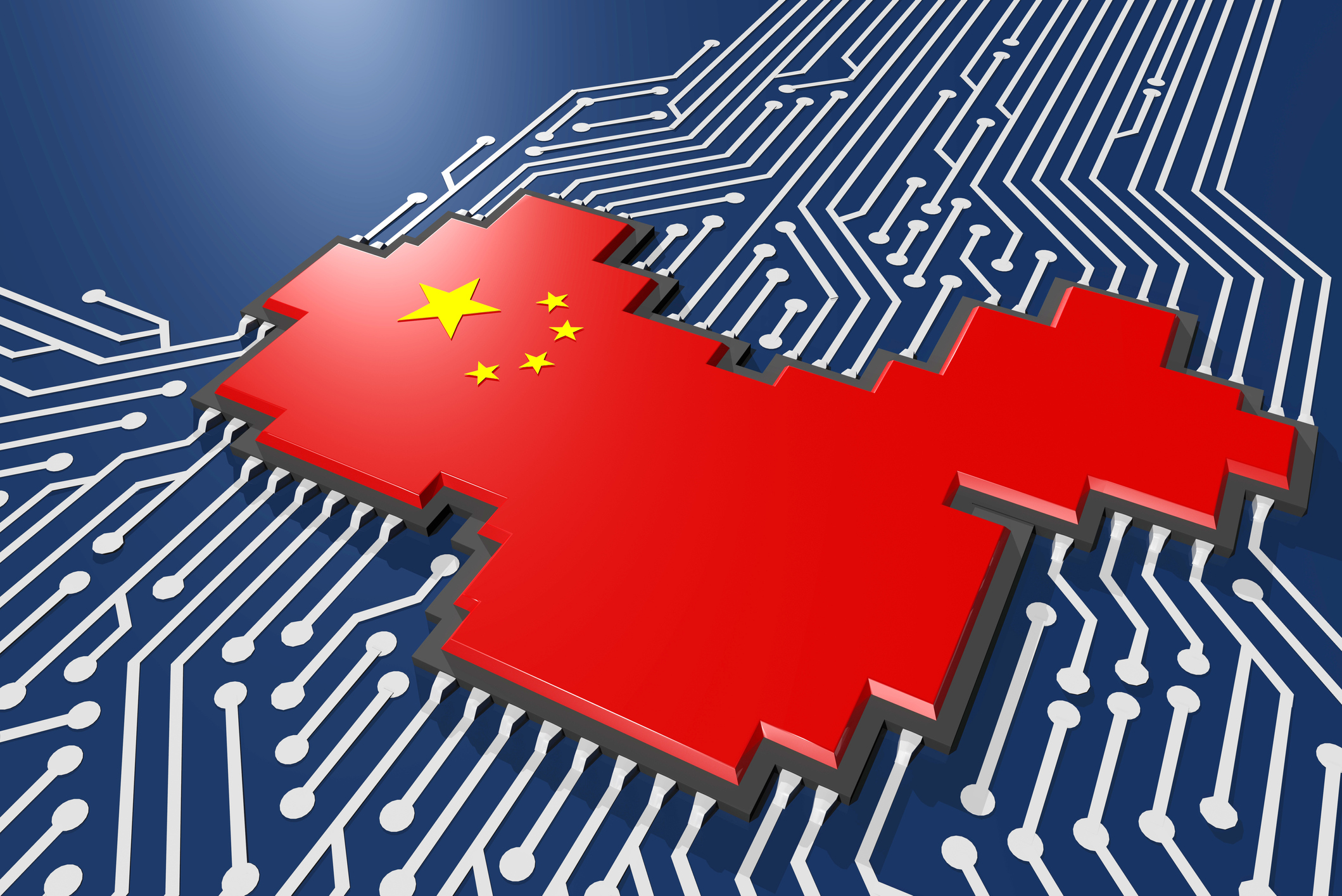China’s Economy Slows, Shows No Clear Signs of Improvement: Kiplinger Economic Forecasts
The biggest factors include fewer exports, a dwindling housing market and less consumer spending.


Profit and prosper with the best of Kiplinger's advice on investing, taxes, retirement, personal finance and much more. Delivered daily. Enter your email in the box and click Sign Me Up.
You are now subscribed
Your newsletter sign-up was successful
Want to add more newsletters?

Delivered daily
Kiplinger Today
Profit and prosper with the best of Kiplinger's advice on investing, taxes, retirement, personal finance and much more delivered daily. Smart money moves start here.

Sent five days a week
Kiplinger A Step Ahead
Get practical help to make better financial decisions in your everyday life, from spending to savings on top deals.

Delivered daily
Kiplinger Closing Bell
Get today's biggest financial and investing headlines delivered to your inbox every day the U.S. stock market is open.

Sent twice a week
Kiplinger Adviser Intel
Financial pros across the country share best practices and fresh tactics to preserve and grow your wealth.

Delivered weekly
Kiplinger Tax Tips
Trim your federal and state tax bills with practical tax-planning and tax-cutting strategies.

Sent twice a week
Kiplinger Retirement Tips
Your twice-a-week guide to planning and enjoying a financially secure and richly rewarding retirement

Sent bimonthly.
Kiplinger Adviser Angle
Insights for advisers, wealth managers and other financial professionals.

Sent twice a week
Kiplinger Investing Weekly
Your twice-a-week roundup of promising stocks, funds, companies and industries you should consider, ones you should avoid, and why.

Sent weekly for six weeks
Kiplinger Invest for Retirement
Your step-by-step six-part series on how to invest for retirement, from devising a successful strategy to exactly which investments to choose.
China plays a big part in global trade, and as the country's economy slows, the effects are felt worldwide. To help you understand what is going on and what we expect to happen in the future, our highly-experienced Kiplinger Letter team will keep you abreast of the latest developments and forecasts (Get a free issue of The Kiplinger Letter or subscribe). You'll get all the latest news first by subscribing, but we will publish many (but not all) of the forecasts a few days afterward online. Here’s the latest...
Something’s amiss with China’s economy. The end of COVID was supposed to boost it, as Beijing ended its draconian lockdown measures. After a brief spurt, Chinese growth is falling. And when China’s economy slows, the whole world feels it, given China’s huge role in world commerce.
Note the red flags popping up in China: Its factory sector is contracting as demand for Chinese goods cools around the world. Consumers who are contending with inflation have less space in their budgets for nonessential items these days. Services and construction activity are down. Ditto, retail sales and business investment.
From just $107.88 $24.99 for Kiplinger Personal Finance
Become a smarter, better informed investor. Subscribe from just $107.88 $24.99, plus get up to 4 Special Issues

Sign up for Kiplinger’s Free Newsletters
Profit and prosper with the best of expert advice on investing, taxes, retirement, personal finance and more - straight to your e-mail.
Profit and prosper with the best of expert advice - straight to your e-mail.
Most worrisome of all: the housing market, which peaked in May 2021. Since then, home sales are down by half. Price gains are weak. Many cities are full of empty apartments, a legacy of overbuilding. Housing was long a driver of China’s growth. But not now, and not anytime soon. Demand hasn’t kept up with the furious pace of construction. China’s consumers have plenty of money. However, they are saving, not spending. Consumer sentiment is below pre-COVID levels. Beijing has exhausted the potential of goosing the economy by channeling credit into the property market. Lenders are already grappling with too much bad debt.
In the longer run, China faces an even bigger problem: population decline. Its cohort of working-age people was already slipping, and then last year saw a drop in the total population for the first time in decades. Fewer people means fewer workers to contribute to GDP growth, fewer sales of goods and services, etc. No way around it.
Without housing to rely on, look for Beijing to try other types of stimulus, such as cheap credit, in the form of lower interest rates on various types of loans. But that risks saddling an economy already drowning in debt with more bad loans.
And there will be more spending on infrastructure, another old standby of the regime. Details are scant so far but expect to hear about a big infrastructure initiative when Communist Party leaders meet in late July. Whatever form that package takes, it won’t fix the structural problems described above. That would take real reform.
For the U.S. and other countries, China’s slowdown means several things, including a relatively cheap yuan, as a result of Beijing loosening credit. That in turn makes Chinese exports cheaper and other countries’ goods more expensive in China. There will be some easing in global commodity demand since China consumes so much of so many raw materials. That could act as a bit of a damper on global inflation. And, there will be no let-up in Western sanctions and tariffs meant to punish Beijing for unfair trade practices or to dissuade it from aggressive acts toward Taiwan.
This forecast first appeared in The Kiplinger Letter, which has been running since 1923 and is a collection of concise weekly forecasts on business and economic trends, as well as what to expect from Washington, to help you understand what’s coming up to make the most of your investments and your money. Subscribe to The Kiplinger Letter.
Profit and prosper with the best of Kiplinger's advice on investing, taxes, retirement, personal finance and much more. Delivered daily. Enter your email in the box and click Sign Me Up.

Rodrigo Sermeño covers the financial services, housing, small business, and cryptocurrency industries for The Kiplinger Letter. Before joining Kiplinger in 2014, he worked for several think tanks and non-profit organizations in Washington, D.C., including the New America Foundation, the Streit Council, and the Arca Foundation. Rodrigo graduated from George Mason University with a bachelor's degree in international affairs. He also holds a master's in public policy from George Mason University's Schar School of Policy and Government.
-
 Ask the Tax Editor: Federal Income Tax Deductions
Ask the Tax Editor: Federal Income Tax DeductionsAsk the Editor In this week's Ask the Editor Q&A, Joy Taylor answers questions on federal income tax deductions
-
 States With No-Fault Car Insurance Laws (and How No-Fault Car Insurance Works)
States With No-Fault Car Insurance Laws (and How No-Fault Car Insurance Works)A breakdown of the confusing rules around no-fault car insurance in every state where it exists.
-
 7 Frugal Habits to Keep Even When You're Rich
7 Frugal Habits to Keep Even When You're RichSome frugal habits are worth it, no matter what tax bracket you're in.
-
 The U.S. Economy Will Gain Steam This Year
The U.S. Economy Will Gain Steam This YearThe Kiplinger Letter The Letter editors review the projected pace of the economy for 2026. Bigger tax refunds and resilient consumers will keep the economy humming in 2026.
-
 Trump Reshapes Foreign Policy
Trump Reshapes Foreign PolicyThe Kiplinger Letter The President starts the new year by putting allies and adversaries on notice.
-
 Congress Set for Busy Winter
Congress Set for Busy WinterThe Kiplinger Letter The Letter editors review the bills Congress will decide on this year. The government funding bill is paramount, but other issues vie for lawmakers’ attention.
-
 The Kiplinger Letter's 10 Forecasts for 2026
The Kiplinger Letter's 10 Forecasts for 2026The Kiplinger Letter Here are some of the biggest events and trends in economics, politics and tech that will shape the new year.
-
 Special Report: The Future of American Politics
Special Report: The Future of American PoliticsThe Kiplinger Letter The Political Trends and Challenges that Will Define the Next Decade
-
 What to Expect from the Global Economy in 2026
What to Expect from the Global Economy in 2026The Kiplinger Letter Economic growth across the globe will be highly uneven, with some major economies accelerating while others hit the brakes.
-
 Shoppers Hit the Brakes on EV Purchases After Tax Credits Expire
Shoppers Hit the Brakes on EV Purchases After Tax Credits ExpireThe Letter Electric cars are here to stay, but they'll have to compete harder to get shoppers interested without the federal tax credit.
-
 The Economy on a Knife's Edge
The Economy on a Knife's EdgeThe Letter GDP is growing, but employers have all but stopped hiring as they watch how the trade war plays out.